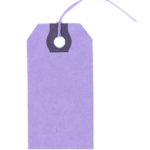April 26, 2021
The text below is a recent post I made available on my itch.io store, submit as part of the (currently ongoing) Tech Jam. It’s a mechanic devised by myself and Steven Savage for a yet-to-be-released apocalypse survival RPG. The mechanic itself is available as part of a Creative Commons license.
You can view the license and download the PDF on my itch.io site for free. But for those just interested in reading it, here it is!
CONDITION TAGGING
Condition Tagging is a mechanic that is specifically focused on the scarcity of needs, tracking what you have available to you, and what you don’t, but desperately need.
It shows the emotional and physical well-being of a single character or an entire group by providing narrative cues for what the group is focused on. It also keeps track of the resources or capabilities available to a party, without needing to get into the slot-by-slot inventory tracking used by many games.
This is a fiction-first mechanic, meaning that you provide the in-game fiction before resolving the effects mechanically. It is also a self-sufficient mechanic, meaning that it uses a closed-loop system to resolve itself. No other mechanics are needed to track health, inventory, sanity, or any other type of meter. But it can also be grafted, used in place of existing systems in other games for inventory or resources.
Above all, Condition Tagging follows the basic law of energy – doing something causes some kind of change.
In mechanical terms, we follow this law through the use of Conditions.
CONDITIONS
There are three types of ‘Conditions’ – Positive, Neutral, and Negative. They represent the various states of well-being that a character or party might be in. For example, being hungry would be Negative Condition, while having just eaten would likely be a Positive one.
Conditions are valuable because they help us keep track of what we want – if you know you’re in a Negative Condition, you also know what you want to be on the lookout for within the game.
It’s not enough to just have a Condition applied in the meta game though. This isn’t detailed enough to have any sort of real meaning within the fiction of the game. Knowing that you have a Negative Condition is good, but unless you know what it’s related to you’re just aimless as you were. We could go around with Positive or Negative Conditions, but we’d have no way of knowing what they represent.
TAGS
Because of this, a Condition will almost always have some kind of descriptor associated with it. These are called ‘Tags.’
Tags are the in-game descriptions that you use to associate the effects of a ‘Condition’. They give you the freedom to apply to whatever Condition you’re in at the time, meaning you can use whatever words you want to describe how the Condition affects you. So, someone with a Negative Condition might have a “Starved” tag or an “I need a snack, man” tag to describe the Negative Condition of not having food. Someone who has just eaten could have the “Stuffed” tag or a “Well-stocked Pantry” tag for their Positive Condition. Mechanically these Tags mean the same thing, but their application is changed by the circumstances surrounding them in the fiction.
NEUTRAL CONDITIONS
So where do Neutral tags come in?
Positive and Negative Conditions don’t come into relevance naturally. What that means is that in order to get either of those Conditions, something has to happen to cause it to stop being a Neutral Condition.
Positive Conditions come about when something good happens. If you have a fulfilling conversation with a friend, you likely feel pretty happy about that! That’s a Positive Condition. Conversely, if you have a really stressful conversation, you might feel a little more bummed out, a Negative Condition.
But if you didn’t have a particularly impactful conversation, the relationship with that person hasn’t really changed. In other words, there’s no cause for a Condition to apply here, so it stays Neutral.
Neutral Conditions are like a balance of sorts: there’s not really a pull in any kind of direction. It’s just stagnant there.
It’s assumed that something is in a Neutral Condition unless something is enacted within the game world to make it change.
It’s easy to think of Tags for the polar Conditions (Positive/Negative), but it can be a little challenging to come up with more lukewarm Tags that matter. Because of this, Neutral Conditions don’t usually have them.
And because of the potentially limitless number of Neutral Conditions that we could come up with, and because most of the time there won’t be any Tags associated with them, we don’t really deal with Neutral Conditions unless we need to. There would be way too much to try and track if we tried. So, unless something is constantly in flux, like your food supply, don’t bother keeping too close of an eye on it until it changes Conditions. If something simply doesn’t exist (unlike hunger or an abundance of food, which are self-evident), it’s not offering any kind of interesting narrative cues to make use of.
THE APPLICATION
So what are we supposed to do with all this info then? What is the benefit of tagging and conditions? Why create all this jargon? How are you supposed to actually use this in a game?
We’ve established that you don’t want to have a Negative Condition; no one wants to be “starving”. Neutral Conditions are okay, but they don’t do much to advance you. What we want is Positive Tags.
Here’s the catch; in order to create Positive Tags, you have to spend an existing Tag.
Let’s use an example to explain. If a group of post-apocalyptic survivors are traveling through a rural area and haven’t been able to find food, they’re likely “Hungry” (Negative). After holing up in a barn for the night, they awake “Well-rested” (Positive). But, this hasn’t changed their situation; in order to find some food, they’ll need to keep pushing on.
They travel further, spending their “Well-rested” Positive Tag in order to push ahead. This new state of energy is a Neutral Condition. Thanks to their search, they come across a boarded-up restaurant with plenty of canned food still intact, bringing their Negative “Hungry” up to the Positive “Stocked Up”.
We see that a spent Positive tag becomes a Neutral one. Similarly, if you spend a Neutral, it will become Negative. You can’t spend a Tag that’s already Negative, since there’s no stage below that.
The simple way to remember this is that any Tag you spend gets downgraded by one stage.
We also see in our example that when a Negative Condition is changed, it becomes a Positive one. The same is true for Neutral Conditions; when you spend your Condition to change something in the fiction, whatever Tag you are increasing becomes Positive, regardless if it was Negative or Neutral beforehand.
Generally, it’s best to spend Positive Tags first; there’s nothing wrong with being in a Neutral Condition but spending it will cause you to have a Negative tag, and you can’t spend Negative tags. But there’s nothing actually preventing that.
To return to our example, let’s say our survivors want to search the area for weapons, so they decide to spend the evening scavenging the nearby ghost town. They find an old armory that still has some weapons they can snag. In mechanical terms, the group has spent their Neutral Condition of energy, making it a Negative tag, “Exhausted.” In exchange, the group has gained much-needed weapons, giving them the Positive tag “Armed to the teeth.” They could have spent their “Well-fed” Positive Tag but didn’t for whatever reason. (Maybe in-game they decided it would be the last search for the day, since it’s getting dark.)
ADDENDUM: OTHER USES
SPLIT TAGGING
You can also do things like split tagging, which lets you have multiple Tags in for a single facet of the game. This is something that works well when you are tracking a group, rather than an individual character, but still gives you the flexibility of something like tracking loads.
Say that our survivors found the armory. But instead of finding a bunch of weapons, they only find a single blade. If the rest of the party is unarmed, with the Negative Tag ‘Defenseless,’ it doesn’t make a whole lot of sense to make it Positive; there’s a lot being left unsaid by that.
In this case you can split the tags, having both a Positive Tag, “Armed,” with a Negative “Defenseless.” It provides a more nuanced overview of the situation in-game. Now you know that you have some kind of weapon for your group, but you’re also not satisfied with your weapons count. You’ll still need to keep looking for some if you want to get rid of that Negative Tag.
GROUPING
So now there’s a bunch of Tags flying all over the place. What helps keep it organized so you can remember what everything is being tagged for?
This highlights the other part of using Condition Tagging – it helps if you create groups for the various types of Tags you might have.
Since it’s likely you’ll have multiple Tags for one thing, especially when you’re split tagging, it’s important that you can easily group them together based on what they’re affecting. That way you know you have 2 Positives and one Negative in the Food group, you know that you could probably just spend one of your Positive Tags to negate your Negative one, and still have a Positive Tag leftover.
These groups are also good if you want to develop some other kinds of mechanics around certain groups. Maybe you want to make it so that the Well-being group replenishes to a Positive Tag every time the group sleeps. Or if you want to make Tags in the Weapons group have a certain number of times they can be used before breaking. It opens up the space for a lot more variation within the kinds of unique sub-systems.
Some other examples of possible groups are: Weaponry, Social, Spiritual. There are plenty of other groups that could exist, like one for magic, or happiness. This mechanic was just initially devised for a zombie apocalypse game, so those don’t apply as much.
USE IN OTHER SYSTEMS
If you’re using this system in another game, a simple way to help integrate it is to use the stages of Conditions as bonuses or penalties.
So, say you come across some kind of enemy and end up getting into a fight. If you’re playing a game that uses dice, having a weapon (A Positive Tag) could pretty easily just be a +1 to a roll, and not having one (Negative) counts as either a bonus to the opponents roll, or a -1 to yours.
In this case, I don’t think that this counts as spending your Tag. You’re just utilizing it to use with an outside system. You’re not making an exchange to increase a different Tag.
Though this would also be a way for you to introduce new Conditions without utilizing the core mechanic.
For example, if you’re in this fight, and end up getting hit and badly damaged, it would make sense that your Condition for well-being changes to a Negative one. You didn’t spend it, it just happened. The outside world enacted something on you.
So similar to the first example, I think you wouldn’t be gaining anything as part of this change. You would just gain a Negative Tag.
This seems like a fair trade to me.
That said, this system is fairly unpolished, and I am sure plenty of people could make some cool hacks to make it better. I encourage you take this idea and run with it! If you make anything cool, please show me what you’ve made!





